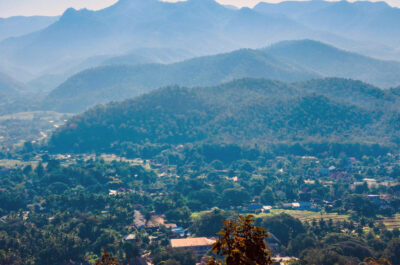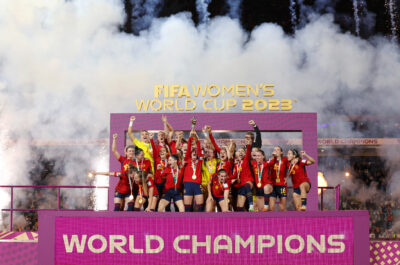With the FIFA denying the use of multi-million dollars Bangkok Futsal Arena for FIFA Futsal World Cup due to safety issues, Bangkok Metropolitan Administration is now embattled into an embarrassing controversy. Especially as it now opens a debate about the country’s ability to host large-scale world class events.
BANGKOK – Futsal is an indoor version for football, which was first played in Latin America. The game has gained popularity over the years with the FIFA (Federation Internationale de Football Association) organizing since 1989 a World Cup. Italy hosted the Futsal World Cup in 2004 followed by Brazil in 2008.
In late 2010, Bangkok was designated to host the event, beating other contenders such as China, Iran, Azerbaijan, the Czech Republic and Guatemala. The city administration then promised to build a new stadium, east of the centre of the capital.
Bangkok Futsal Arena, a rather beautifully-designed 12,000 seat sport structure was supposed to turn into the main venue for the opening and closing ceremony as well as some of the most important matches. Located near Mahanakorn University of Technology, the 132m x 116m stadium is divided into five storeys and stands at a height of 25m surrounded by trees.
But this was only on the paper. Like in a bad soap opera TV series, political rivalry, money and polemics took their toll on the stadium’s construction and conducted to the current debacle.
They were polemics about the selection of the site in Nong Chok district, eastern of Bangkok, deemed to far away from town; then the change of government in July 2011 translated into a cut into the construction budget (from THB 1.6 billion to 1.2 billion). Financing was delayed until the City Administration finally provided additional funding. Then massive flooding came to the capital at the end of last year.
The eastern part of Bangkok was particularly affected. In Nong Chok (where the stadium is located), communities had to survive for over a month time in the water. With blocked access to Nong Chok and the inability to bring material, work had to be suspended for a few months.
Despite a workers’ team of up to 2,500 people toiling around the clock for months, the stadium was still not ready by mid October 2012, two weeks prior to the opening of FIFA Futsal World Cup. Last icing on the cake has been the missing wooden playing floor as its delivery was blocked in China.
Despite giving a new October 29 deadline to Bangkok Metropolitan Administration to complete the stadium, the FIFA finally refused to endorse the US$ 43-million Bangkok Futsal Arena for use at the Futsal World Cup.
“Although further significant progress has been made, including the installation of a pitch, the key criteria laid out following the committee meeting on Oct 31 have not been sufficiently met. The safety of spectators, teams and all other visitors to the stadium are of paramount importance. FIFA and the local organising committee therefore concluded that such a fundamental issue, as well as the functionality of core services and facilities, cannot be compromised”, indicated FIFA Futsal Committee in an official statement posted on their website.
Matches have then been shifted to Bangkok’s Nimibutr Gymnasium and Hua Mark Indoor Stadium. Of course, nobody in Thailand wants now to endorse the responsibility to the current debacle.
Bangkok Governor Mr Sukhumbhand Paribatra declared during a press conference that “FIFA did not give us any feedback. Nor did it give us a call. It should have notified us before announcing its decision publicly”, reported the Bangkok Post in his yesterday edition. While opposition to the Mayor –including the government- asked for the Governor’s resignation following this national embarrassment, Mr Sukhumband looks now to sue FIFA. “We’re looking at ways to sue Fifa for causing damage to the Bangkok Metropolitan Administration [BMA],” he explained to journalists yesterday.
Bangkok Futsal Arena however puts another question: Is Thailand really ready to host big events as it generally cannot meet up deadlines as soon as construction of new infrastructure are requested ? It is extremely unusual that a country is unable to complete a facility on time for a big event…
So far over the last decade, the only major new project completed on time- once approved- has been Suvarnabhumi Airport. Despite construction problems –which still last until today- Bangkok new air gateway was mostly well completed with “only” a one year delay. It took at the end four years to build up the massive facility.
But what about other infrastructures in the country ? What about the massive build-up of public transport in Bangkok, which has been approved by every government for the last 15 years? Work on new MRT and Skytrain lines have since started with some of them due for completion in 2015… What about Phuket Convention Centre, planned at least for a decade? What about a high speed train between Bangkok and Chiang Mai talked for almost 18 years?
As Thailand now bids to host a World Expo in 2020 in Ayutthaya, the country’s struggle to just complete a single stadium on schedule does not augur well about the capability of the Kingdom to stage such a world class event. Blame political games and corruption but the result is there: Thailand’s credibility is at stake…People could be forgiven for struggling to come to terms with what has happened; it is a rare occurrence for a host country to fail to prepare on time for an international competition.
The 2012 FIFA Futsal World Cup is the 7th FIFA Futsal World Cup is taking place from 1–18 November 2012 in Thailand.




























































































































































































